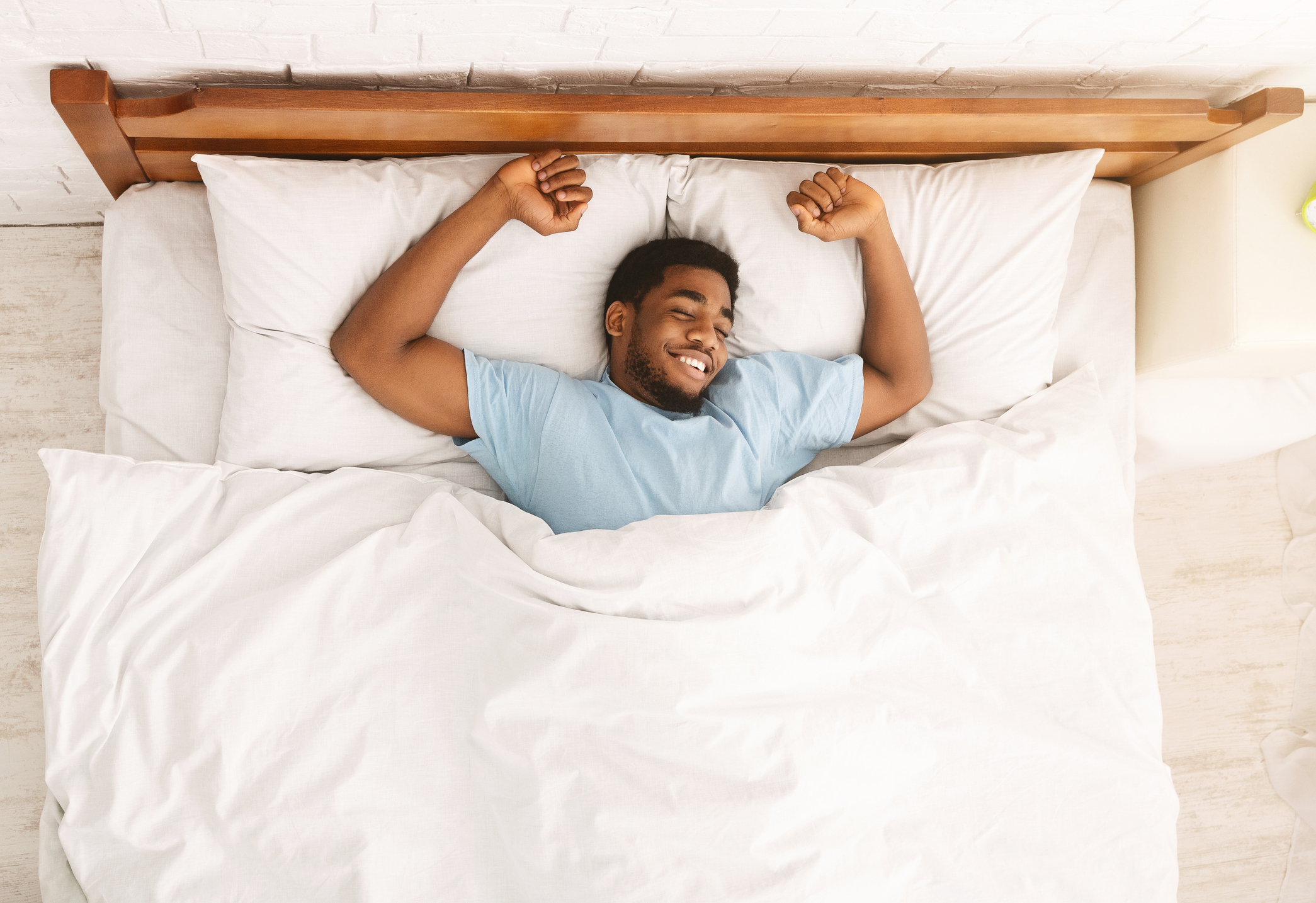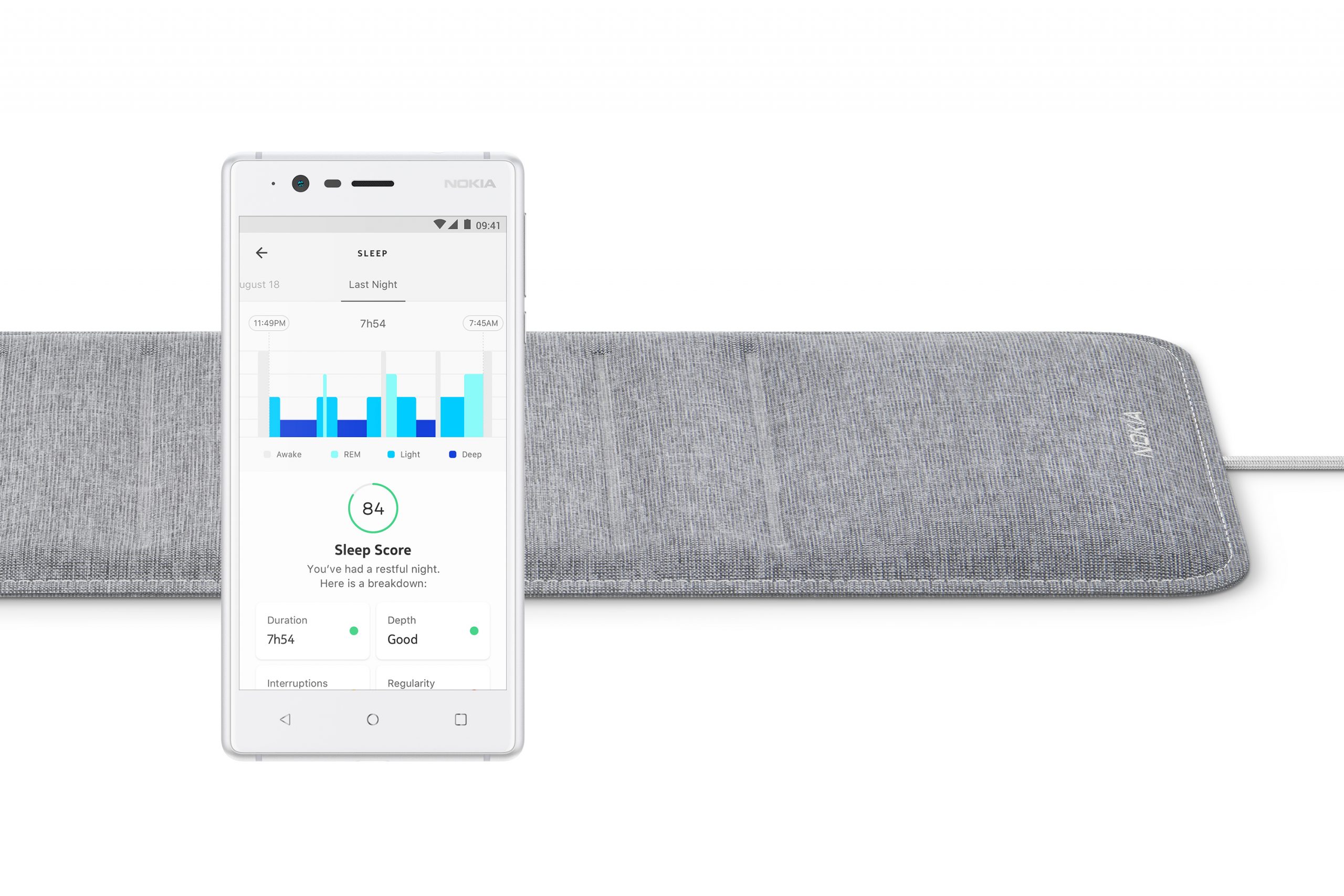
A wide range of factors can have an effect on your heart rate while sleeping, but what are they, and how much of an impact do they really have?
Heart rate can be a fickle thing, even when you’re asleep. From the temperature of the air to your body size and emotions, tons of things can cause your heart to beat faster or slower. But what happens to your sleeping heart rate when other factors come into play? We all know how important it is to catch some good Zzz’s, so read on to find out all about the different things that can have an impact on your heart rate while sleeping, from spine-chilling dreams to copious amounts of coffee.
What happens to your heart rate while sleeping normally?
Okay, first things first: let’s find out what happens to your heart rate on an average night. The key thing to remember is that your sleeping heart rate is going to be lower than your normal resting heart rate. How much lower? Well, on average, heart rate while sleeping decreases by around 24 beats per minute (BPM) in young adults, while people over 80 see a 14 BPM decrease. Nocturnal heart rate can also vary significantly between individuals by up to 70 beats per minute.
So, why do people have a lower heart rate while sleeping? The nerve signals that raise heart rate decrease during sleep while the signals that lower heart rate increase. While there are heart-rate variations throughout the different sleep cycles, the headline news is that sleeping heart rate should be lower than your resting heart rate.
But why is an elevated heart rate during sleep a potential problem? “Sustained elevation of heart rate tends to cause wear on the heart,” says Dr. Douglas P. Jeffrey, family medical specialist and medical advisor for eMediHealth. “The chronic workload imposed by a higher heart rate over the baseline could eventually lead to heart attack, congestive heart failure, and premature death.” Essentially, your heart works during sleep but should not work as hard, and if it is, then this could be a sign of an underlying problem.
Does smoking have an impact on overnight heart rate?
Smoking raises heart rate to such an extent that you can expect your heart rate and blood pressure to drop within 20 minutes of quitting smoking. Why? Nicotine raises heart rate while sleeping and keeps individuals up at night by making them feel more awake. Vapes and e-cigarettes also contain plenty of nicotine and may contribute to a raised heart rate while sleeping. The big takeaway is that smoking can have an impact on nocturnal heart rate, which is why—among other reasons—it may be a good idea to pack it in.
What is the effect of sleep apnea on heart rate?
One of the key health benefits of sleeping is that it gives the heart a bit of a break. However, sleep apnea, a condition that prevents enough oxygen from being delivered to the lungs during sleep, disrupts that entire process. The consequence of sleep apnea is that it raises sleeping heart rate and has a potentially serious impact on health. Some of the eventual effects of untreated sleep apnea range from cardiovascular disease to hypertension, so it’s important to seek treatment if you suffer from the condition.
How much of an effect does alcohol have on heart rate?
Are you a fan of a bedtime nightcap? You might want to rethink that as studies have shown that people who drink a large amount of alcohol before bed take longer to reach the REM sleep stage, and their sleeping heart rate is significantly higher than it would otherwise be.
What’s the impact of caffeine on sleeping heart rate?
Caffeine before bed keeps us up at night, but studies have shown that even one strong coffee in the afternoon could reduce sleep by one hour. So, the effects of a coffee immediately before bedtime are likely to be even more significant, and if you consume too much caffeine before bed, you may develop a rapid heart rate. That’s backed up by research studies, which suggest that excessive caffeine intake could increase your heart rate while sleeping as well as your heart rate variability.
Have you ever woken up panting, heart beating out of your chest, reliving that horrendously realistic experience where you went to work without any pants on? We hope night terrors aren’t a regular occurrence, but it’s important to remember that they can influence your sleeping heart rate. In fact, night terrors can raise your heart rate while sleeping up to about 180 BPM, which is a massive jump.

